 W
WA constitutional referendum was held in France on 27 April 1969. The reforms would have led to government decentralization and changes to the Senate. It was rejected by 52.4% of voters, and failure of the amendments led to President Charles de Gaulle's resignation.
 W
WNiger is governed through a four layer, semi-decentralised series of Administrative divisions. Begun 1992, and finally approved with the formation of the Fifth Republic of Niger on 18 July 1999, Niger has been enacting a plan for Decentralisation of some state powers to local bodies. Prior to the 1999-2006 project, Niger's subdivisions were administered via direct appointment from the central government in Niamey. Beginning with Niger's first municipal elections of 2 February 1999, the nation started electing local officials for the first time. Citizens now elect local committee representatives in each Commune, chosen by subdivisions of the commune: "Quarters" in towns and "Villages" in rural areas, with additional groupings for traditional polities and nomadic populations. These officials choose Mayors, and from them are drawn representatives to the Department level. The same process here chooses a Departmental council and Prefect, and representatives to the Regional level. The system is repeated a Regional level, with a Regional Prefect, council, and representatives to the High Council of Territorial Collectives. The HCCT has only advisory powers, but its members have some financial, planning, educational and environmental powers. The central government oversees this process through the office of the Minister of State for the Interior, Public Safety and Decentralization.
 W
WThe administrative divisions of Peru have changed from time to time since the nation gained independence from Spain in the early 19th century. The old territorial subdivisions have split or merged due to several reasons, the most common ones being the need for decentralization and population increase, especially in Lima.
 W
WAdministratively, Portugal is de jure unitary and decentralized state. Nonetheless, operationally, it is a highly centralized system with administrative divisions organized into three tiers. The State is organized under the principles of subsidiarity, local government autonomy, and democratic decentralization of the public service.
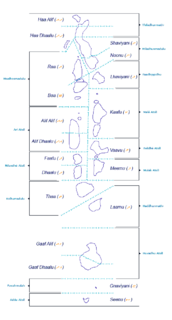 W
WThe Administrative Divisions of the Maldives refers to the various units of government that provide local government services in the Maldives. According to the Decentralization Act 2010, the administrative divisions of the Maldives would consist of atolls, islands, and cities; each administered by their own local council, under the basic terms of home rule. Geographically, the Maldives are formed by a number of natural atolls plus a few islands and isolated reefs which form a pattern from North to South. Administratively, there are currently 189 islands, 17 atolls and 4 cities in the Maldives.
 W
WAirDine was a supper club mobile app based on the sharing economy principles where individuals stand as both supplier and customer, similar to Airbnb in the short time rental market.
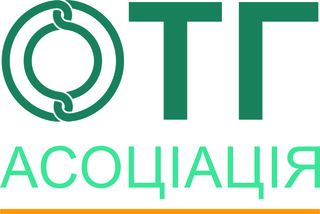 W
WThe Association of Amalgamated Territorial Communities is an organization of municipal government representing over 490 Ukrainian amalgamated municipalities. Its stated purpose is to provide political and strategic leadership to represent the interests of local municipalities established in the process of voluntary association of territorial communities after Euromaidan. The AACT was founded in 2016.
 W
WAn autonomous administrative division is a subnational administrative division or internal territory of a sovereign state that has a degree of autonomy — self-governance — under the national government. Autonomous areas are distinct from the constituent units of a federation in that they possess unique powers for their given circumstances. Typically, it is either geographically distinct from the rest of the state or populated by a national minority. Decentralization of self-governing powers and functions to such divisions is a way for a national government to try to increase democratic participation or administrative efficiency or to defuse internal conflicts. States that include autonomous areas may be federacies, federations, or confederations. Autonomous areas can be divided into territorial autonomies, subregional territorial autonomies, and local autonomies.
 W
WIn Spain, an autonomous community is a first-level political and administrative division, created in accordance with the Spanish constitution of 1978, with the aim of guaranteeing limited autonomy of the nationalities and regions that make up Spain.
 W
WZiyad Baroud is a Lebanese civil servant and civil society activist. He served as minister of interior and municipalities, considered to be one of the most powerful positions in the country, from 2008 to 2011 for two consecutive cabinets in both Fuad Siniora and Saad Hariri's governments.
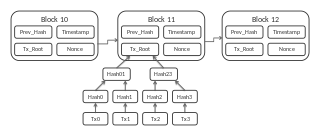 W
WA blockchain is a growing list of records, called blocks, that are linked using cryptography. Each block contains a cryptographic hash of the previous block, a timestamp, and transaction data. By design, a blockchain is resistant to modification of its data. This is because once recorded, the data in any given block cannot be altered retroactively without alteration of all subsequent blocks.
 W
WMurray Bookchin was an American anarchist, political philosopher, trade-union organizer, and educator. A pioneer in the environmental movement, Bookchin formulated and developed the theory of social ecology and urban planning, within anarchist, libertarian socialist, and ecological thought. He was the author of two dozen books covering topics in politics, philosophy, history, urban affairs, and social ecology. Among the most important were Our Synthetic Environment (1962), Post-Scarcity Anarchism (1971), The Ecology of Freedom (1982) and Urbanization Without Cities (1987). In the late 1990s, he became disenchanted with what he saw as an increasingly apolitical "lifestylism" of the contemporary anarchist movement, stopped referring to himself as an anarchist, and founded his own libertarian socialist ideology called communalism, which seeks to reconcile Marxist and anarchist thought.
 W
WConcertación Descentralista was a Peruvian electoral coalition established to contend in the 2006 national election. It comprises two national-level parties: the Partido por la Democracia Social - Compromiso Perú (PDS) and the Partido Movimiento Humanista Peruano (PMHP). It was formally announced on 10 December 2005, barely two days after both parties obtained formal recognition by the Jurado Nacional de Elecciones, the election process authority.
 W
WIn the year 2000, Rwanda engaged in a decentralization process materialized by the adoption of the National Decentralization Policy. The policy's objective were the promotion of good governance, the reduction of poverty as well as the promotion of efficient, effective, and accountable service delivery.
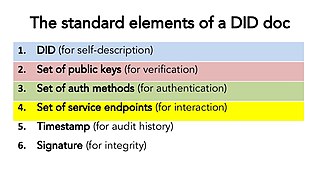 W
WDecentralized identifiers are a type of identifier that enables a verifiable, decentralized digital identity. They are an important component of decentralized web applications.
 W
WThe Democratic Party for a New Society is a registered political party in Myanmar (Burma), founded in 1988 by Moe Thee Zun, the then Secretary General of the All Burma Students League (ABSL). The party campaigns independently from other parties and is unaffiliated with the more influential National League for Democracy (NLD), despite sharing similar goals.
 W
WBolivia is a unitary state consisting of nine departments. Departments are the primary subdivisions of Bolivia, and possess certain rights under the Constitution of Bolivia. Each department is represented in the Plurinational Legislative Assembly—a bicameral legislature consisting of the Senate and the Chamber of Deputies. Each department is represented by four Senators, while Deputies are awarded to each department in proportion to their total population.
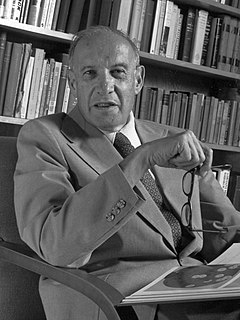 W
WPeter Ferdinand Drucker was an Austrian management consultant, educator, and author, whose writings contributed to the philosophical and practical foundations of the modern business corporation. He was also a leader in the development of management education, he invented the concept known as management by objectives and self-control, and he has been described as "the founder of modern management".
 W
WThe federalization of Yemen or the Federal Republic of Yemen was the final outcome of the National Dialogue Conference, the Dialogue members also agreed that Yemen would be transformed into a 6-region federal system. The regions would be Azal, Saba, Janad and Tihama in the north, Aden and Hadramawt in the south. Sana’a will have a special status and not be part of any region. Aden, the former southern capital, would also have a special status but will be part of Aden region. Azal, Saba, Janad and Tihama would be northern provinces where Aden and Hadramawt would be southern. The proposal also includes changing the title of "Governorate" to "state".
 W
WA federated state is a territorial and constitutional community forming part of a federation. Such states differ from fully sovereign states, in that they do not have full sovereign powers, as the sovereign powers have been divided between the federated states and the central or federal government. Importantly, federated states do not have standing as entities of international law. Instead, the federal union as a single entity is the sovereign state for purposes of international law. Depending on the constitutional structure of a particular federation, a federated state can hold various degrees of legislative, judicial and administrative jurisdiction over a defined geographic territory and is a form of regional government.
 W
WVillage Law is a set of rules regarding the conduct of government villages with consideration has evolved in various forms that need to be protected and empowered to become strong, advanced, independent, and democratic so as to create a strong foundation in carrying out governance and development towards a just and prosperous society. This Law also regulates the principle of setting materials, Position and type of Village, the Village Planning, Authority of the Village, the Village Governance, rights and Duties of the Village and Village Communities, Village Regulation, Financial Asset Village and Village, Rural Development and Rural Area Development, village-owned enterprises, Cooperative Village, the Village Society Institute and the Institute of Indigenous Village, as well as Development and Control. In addition, this Act also set up with a special provision that applies only to the Village People as set out in Chapter XIII.
 W
WMicrogeneration is the small-scale generation of heat and electric power by individuals, small businesses and communities to meet their own needs, as alternatives or supplements to traditional centralized grid-connected power. Although this may be motivated by practical considerations, such as unreliable grid power or long distance from the electrical grid, the term is mainly used currently for environmentally-conscious approaches that aspire to zero or low-carbon footprints or cost reduction. It differs from micropower in that it is principally concerned with fixed power plants rather than for use with mobile devices.
 W
WThe Ministry of the Interior and Decentralization is the national Ministry of the Interior of Mauritania. Its headquarters are located in Nouakchott, just south of the Presidential Palace, between the Chamber of Commerce and the College of Science and Technology.
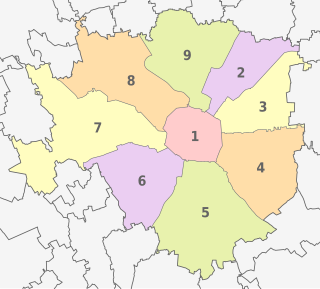 W
WMilan, Italy is divided into nine municipalities. They are numbered from 1 to 9. The organization was established in 1997, implemented in 1999 and reformed in 2016; prior to that the city was divided into 20 administrative zones.
 W
WSpain is a diverse country integrated by contrasting entities with varying economic and social structures, languages, and historical, political and cultural traditions. According to the current Spanish constitution, the Spanish nation is the common and indivisible homeland of all Spaniards, composed of nationalities and regions which the constitution recognizes and guarantees the right of self-government.
 W
WNetwork topology is the arrangement of the elements of a communication network. Network topology can be used to define or describe the arrangement of various types of telecommunication networks, including command and control radio networks, industrial fieldbusses and computer networks.
 W
WThe Party of Reason is a libertarian political party in Germany founded in 2009 by Oliver Janich.
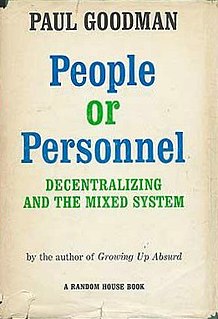 W
WPeople or Personnel is a critique of centralized power written by Paul Goodman and published by Random House in 1965.
 W
WThe politics of Somalia takes place in a framework of federal parliamentary representative democratic republic. According to the Constitution of Somalia, the President of Somalia is head of state, and Prime Minister as head of government who is appointed by the President with the parliament's approval.
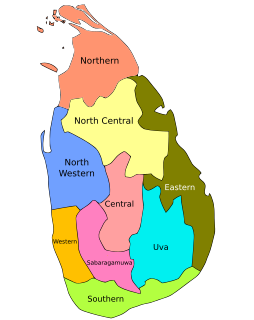 W
WIn Sri Lanka, provinces are the first level administrative division. They were first established by the British rulers of Ceylon in 1833. Over the next century most of the administrative functions were transferred to the districts, the second level administrative division. By the middle of the 20th century the provinces had become merely ceremonial. This changed in 1987 when, following several decades of increasing demand for a decentralization, the 13th Amendment to the 1978 Constitution of Sri Lanka established provincial councils. Currently there are nine provinces.
 W
WThe Reform Party of Canada was a centre-right to right-wing populist and conservative federal political party in Canada that existed from 1987 to 2000. Reform was founded as a Western Canada-based protest movement and eventually became a populist conservative party, with strong social conservative elements. It was initially motivated by the perceived need for democratic reforms and by profound Western Canadian discontent with the Progressive Conservative (PC) federal government of Brian Mulroney.
 W
WThe Republics of the Union of Soviet Socialist Republics or the Union Republics were ethnically based administrative units of the Union of Soviet Socialist Republics (USSR). The Soviet Union was created by the treaty between the soviet socialist republics of Belarus, Ukraine, the Russian Federation, and the Transcaucasian Federation, by which they became its constituent republics. For most of its history, the USSR was a highly centralized state; the decentralization reforms during the era of Perestroika ("Restructuring") and Glasnost ("Openness") conducted by Mikhail Gorbachev are cited as one of the factors which led to the dissolution of the USSR in 1991.
 W
WErnst Friedrich Schumacher was a German-British statistician and economist who is best known for his proposals for human-scale, decentralised and appropriate technologies. He served as Chief Economic Advisor to the British National Coal Board from 1950 to 1970, and founded the Intermediate Technology Development Group in 1966.
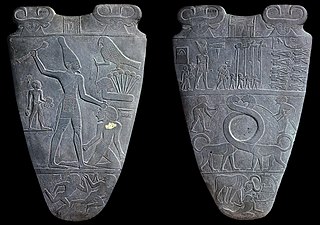 W
WState-building as a specific term in social sciences and humanities, refers to political and historical processes of creation, institutional consolidation, stabilization and sustainable development of states, from the earliest emergence of statehood up to the modern times. Within historical and political sciences, there are several theoretical approaches to complex questions related to role of various contributing factors in state-building processes.
 W
WThe Subsistence Homesteads Division of the US Department of the Interior was a New Deal agency that was intended to relieve industrial workers and struggling farmers from complete dependence on factory or agricultural work. The program was meant to provide relatively low cost homesteads, including a home and small plots of land that would allow them to sustain themselves; through the program, thirty-four communities were built. Unlike subsistence farming, subsistence homesteading is based on a family member or members having part-time, paid employment.
 W
WThe federalization of Syria has been proposed as a way to end the Syrian Civil War. In the broadest sense, it means turning the centralized Syrian Arab Republic into a federal republic with autonomous subdivisions. Many powers and actors involved in the Syrian Civil War have entertained the idea of "federal division", not least among them Russia, United Nations representatives, and the United States. President Bashar al-Assad has not ruled out the possibility of a federal democratic state of Syria. Turkey is strongly hostile towards the idea of federalization in Syria because it fears possible repercussions for its own highly centralized state.
 W
WThe Uganda Local Governments’ Association (ULGA) is the National Association of Local Governments of Uganda. It is a private, voluntary and non-profit body.
 W
WUrban sprawl is the unrestricted growth in many urban areas of housing, commercial development, and roads over large expanses of land, with little concern for urban planning. In addition to describing a particular form of urbanization, the term also relates to the social and environmental consequences associated with this development. Since the advent of the industrial era, sprawl has entailed no direct disadvantages, such as the loss of protection from medieval city walls. However, its disadvantages and costs include increased travel time, transport costs, pollution, and destruction of countryside. The cost of building the infrastructure needed for new developments is hardly ever recouped through property taxes, amounting to a huge subsidy for the developers and new residents at the expense of existing property taxpayers. In Continental Europe, the term peri-urbanisation is often used to denote similar dynamics and phenomena, but the term urban sprawl is currently being used by the European Environment Agency. There is widespread disagreement about what constitutes sprawl and how to quantify it. For example, some commentators measure sprawl only with the average number of residential units per acre in a given area, but others associate it with decentralization, discontinuity, segregation of uses, and so forth.
 W
WIn urban planning and design, an urban village is an urban development typically characterized by medium-density housing, mixed use zoning, good public transit and an emphasis on pedestrianization and public space. Contemporary urban village ideas are closely related to New Urbanism and smart growth ideas initiated in the United States.
 W
WDrinking water supply and sanitation in Benin has been subject to considerable progress since the 1990s, in particular in rural areas, where coverage is higher than in many other African countries, and almost all development partners follow a national demand-responsive strategy, which has been adopted in 1992. New strategies to increase water supply in rural and urban areas have been adopted in 2005 and 2006. Tariffs in urban and rural areas are usually high enough to cover the costs for operation and maintenance.
 W
WAccess to water supply and sanitation in Ethiopia is amongst the lowest in Sub-Saharan Africa and the entire world. While access has increased substantially with funding from foreign aid, much still remains to be done. Some factors inhibiting the achievement of these goals are the limited capacity of water bureaus in the country's nine regions, two city administrations and water desks in the 770 districts of Ethiopia (woredas); insufficient cost recovery for proper operation and maintenance; and different policies and procedures used by various donors, notwithstanding the Paris Declaration on Aid Effectiveness.
 W
WThe Ugandan water supply and sanitation sector made substantial progress in urban areas from the mid-1990s until at least 2006, with substantial increases in coverage as well as in operational and commercial performance. Sector reforms from 1998 to 2003 included the commercialization and modernization of the National Water and Sewerage Corporation (NWSC) operating in cities and larger towns, as well as decentralization and private sector participation in small towns.
 W
WZooko's triangle is a trilemma of three properties that are generally considered desirable for names of participants in a network protocol:Human-meaningful: Meaningful and memorable (low-entropy) names are provided to the users. Secure: The amount of damage a malicious entity can inflict on the system should be as low as possible. Decentralized: Names correctly resolve to their respective entities without the use of a central authority or service.